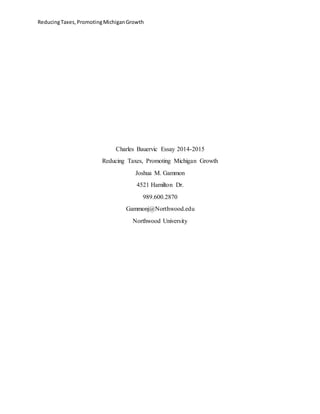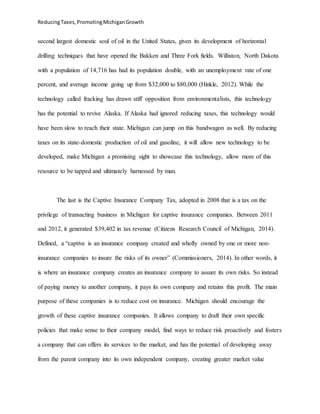1) The document discusses three areas of Michigan's economy and tax code that could benefit from lower taxes to generate greater job availability and economic growth. These include reducing the foreign insurance company retaliatory tax, oil and gas severance taxes, and eliminating the captive insurance company tax.
2) Lowering these three taxes would make Michigan a more business-friendly environment by reducing costs for companies, expanding consumer choice, and simplifying the tax code. It would encourage business expansion and relocation to Michigan.
3) Specifically, reducing the foreign insurance tax would level the playing field for out-of-state insurers, lowering oil and gas taxes could boost production and tap new reserves to generate more revenue, and eliminating the






